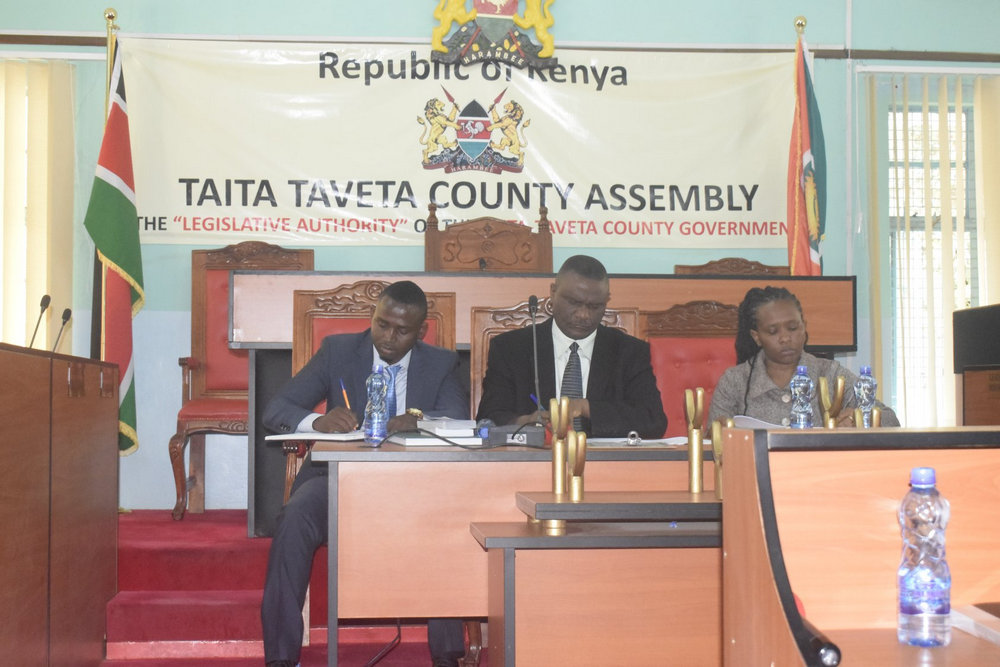Taita Taveta’s Sh530 million Ward Fund under fire over questionable spending

Campaigners argue that MCAs are sidestepping their constitutional duties of representation, oversight, and lawmaking by directly executing programmes without adequate public involvement or alignment with the County Integrated Development Plan (CIDP).
Civil society organisations in Taita Taveta County have criticised the handling of a Sh530 million ward fund, accusing Members of the County Assembly (MCAs) of using it for political gimmicks instead of meaningful development.
The activists say the kitty has been turned into a tool for tokenism disguised as community empowerment.
More To Read
- Taita Taveta residents to receive fresh guidance on biotechnology amid rising misinformation
- Court nullifies Agriculture Ministry tender to lease Bachuma Livestock Station
- Taita Taveta leaders push for women’s land rights, economic empowerment
- Evictions in Taveta spark outrage as county demands immediate halt
- Solar-powered sunflower oil refinery brings new hope to Taita Taveta farmers
- Showdown looms as counties, MPs clash over Road Maintenance Levy Fund
Each of the 20 wards in the county receives Sh26.5 million to implement local projects, but campaigners argue that MCAs are sidestepping their constitutional duties of representation, oversight, and lawmaking by directly executing programmes without adequate public involvement or alignment with the County Integrated Development Plan (CIDP).
In a meeting held in Voi, the groups described the fund as non-transparent and politically motivated.
“This is a breeding ground for corruption, dressed up as empowerment while serving no real purpose,” said Mercy Mwakio of Sauti ya Wanawake Organisation.
She noted that the current projects fail to respond to urgent community needs, highlighting challenges in healthcare, access to safe water, and the growing cases of gender-based violence.
She urged for planning that prioritises citizens, pointing to the County Government Act 2012 and the Public Finance Management Act 2012, both of which mandate public participation and equal resource allocation.
Ridhiwani Sadiki, Secretary-General of the Taita Taveta CSOs Network, called on MCAs to let the county executive take charge of implementation. He said elected leaders should concentrate on their main roles instead of turning development programmes into political projects.
Budget records seen by The Nation show questionable allocations. In Mbololo Ward, Sh2 million has been earmarked for youth empowerment, Sh1.5 million for a boda boda shed at Moi Hospital, and Sh1.3 million for 1,000 plastic chairs.
Ngolia Ward has set aside Sh2 million for utensils in villages and another Sh2 million for grants to women and youth groups. In Bomeni Ward, Sh3 million will go into 2,000 chairs, 40 sufurias, and 40 serving dishes, alongside money for sound systems and women’s initiatives.
Young people and other community members have dismissed these allocations as lacking long-term value.
“If you give chairs, how often will they be rented to generate income? These programmes must be rethought,” said Gibson Mwakio from Mbololo.
The controversy escalated after Wundanyi MCA Jimmy Mwamidi unveiled two sufurias as part of an empowerment launch. The event attracted ridicule and was seen as an example of misplaced priorities.
But County Finance Executive Elijah Mwazo defended the arrangement, insisting the fund is not under the direct control of MCAs.
“Funds are deposited directly into group accounts to prevent corruption. The MCAs never handle the money,” he said. Mwazo, however, acknowledged that more effort is needed to involve the public and ensure sustainable projects.
Top Stories Today











































